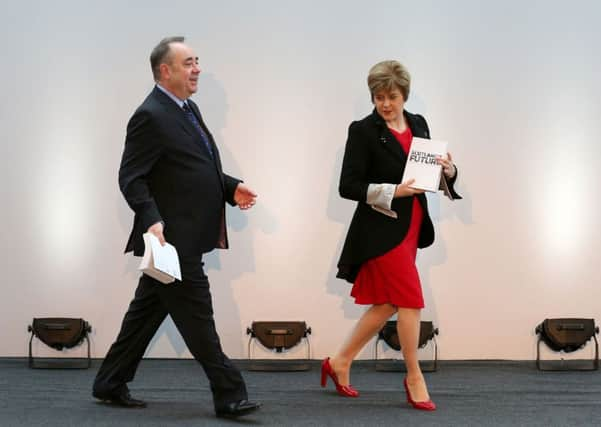David Torrance: Sturgeon to muzzle Salmond’s roar?


He once referred to her as his “apprentice”, which captured something of this dynamic. His political style has often frustrated her, but there is an unspoken bond that neither will criticise the other in public.
Yet often the tension is perfectly obvious. On election night, for example, the First Minister maintained an admirable cool, urging everyone to keep calm and avoid triumphalism. Mr Salmond, on the other hand, was likening Scotland to a roaring lion.
Advertisement
Hide AdAdvertisement
Hide AdThe former SNP leader told interviewers the election result would bring another independence referendum nearer, while his successor made it repeatedly clear it did not. Asked about Mr Salmond’s remarks, the First Minister skilfully sidestepped the question.
She might find the next five years throws up similar situations in which the SNP’s Edinburgh-based leadership appears at odds with that in Westminster. Having dominated Holyrood for the past eight years, Mr Salmond will clearly be looking forward to dominating the green benches instead.
Thus his role, de facto or otherwise, as leader of the SNP group in the House of Commons will require careful management by the First Minister in Edinburgh. She has spent a lot of time in London and it seems likely that will continue.
Significantly, the issue on which the SNP now enjoys “influence”, given its renewed electoral mandate, will take the form of an inter-government discussion rather than anything involving newly-elected MPs. In that sense, Mr Salmond will have a peripheral role, if any at all.
At the same time, the former first minister will lead almost as big a presence in the Commons as the Liberal Democrats were in the last Parliament, which means a much higher profile in the UK Parliament and, importantly, more “short” money – funding for staff, policy research and office space.
At the same time, it seems unlikely the SNP’s 56 MPs will have any genuine clout at Westminster. To have real influence, they need to be prepared to negotiate and occasionally vote with the Conservatives (as Mr Salmond did as an MP in the early 1990s), and Ms Sturgeon has made it clear that will not happen.
Mr Salmond, therefore, has hinted at the party making its presence known through other means, perhaps something akin to the disruptive tactics he deployed as a young MP in the late 1980s. But while that might delight diehard partisans, it would infuriate the First Minister, who has repeatedly pledged to be “constructive”.
So if there is a clash between the former and current SNP leaders, it will likely be one of style rather than substance. But with the party’s new MPs likely to be scrutinised closely over the next few months, that might not be very helpful.